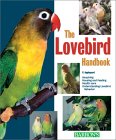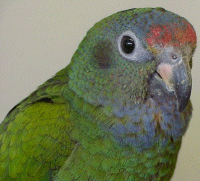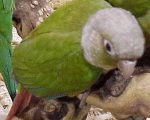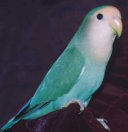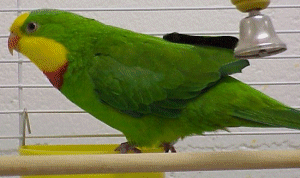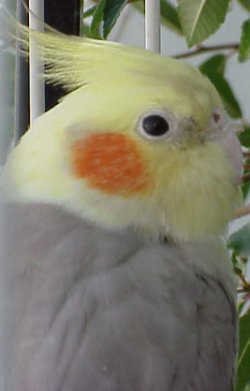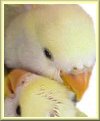Previously I created a home preparedness list for the sorts of emergencies that might commonly arise in homes with pet birds. However, there are some emergencies that require even greater preparedness. A household fire could be a time of great panic. While you might not feel at risk for this type of emergency, it is always a possibility. You don’t want to be searching for pet carriers and towels should you ever have to get out of your home quickly in the event of a fire. Continue reading »
Prepare for Emergencies – Parrot Home Emergency Kits
Our pet birds depend on us for their safety and well-being, so it is important to be prepared should they need us to act quickly and decisively in the face of an emergency. No one wants to be in the midst of a natural disaster and realize they are not at all prepared. Take the time to put together an emergency plan and supplies for every possible situation, and you have a good chance of saving your birds in the face of even the gravest situation. Continue reading »
Playing It Safe with Bird Toys
We love to give our birds toys. They are intelligent, curious creatures. Add a toy to their cage, and they will amuse and delight us. Toys keep them happy and involved. Behaviorists often advise owners with a bird who plucks his feathers to make sure they give their pet plenty of toys and rotate them regularly to prevent boredom. Wooden toys can keep beaks trimmed and prevent your favorite dining room chair from becoming the chew toy of choice. However, many toys contain hidden dangers. If these toys are used improperly or without appropriate supervision, they can cause injuries and even kill your pet birds. Continue reading »
The Accidental Breeder
The scenario goes like this: You have two birds, let’s say lovebirds, and they seem to be a male and female pair. You think, “Wouldn’t it be nice to have little baby lovebirds?” You put up a nestbox and wait. You aren’t really “breeding,” you are just “seeing what happens.” You are excited a few weeks later to see the hen has laid five beautiful, perfect eggs. You wait a bit more, and are thrilled one day to find the eggs have begun to hatch. Suddenly it hits you; you have no idea what to do now. Here are these squirming little babies appearing and you have so many questions. Continue reading »
The Well-Groomed Bird
A happy bird is a well-groomed bird. You can tell them when you see them. Feathers are soft and vibrant; the bird looks magnificent when it fluffs up its body and stretches out its wings. The difference can often be quite evident between a bird who is regularly groomed or bathed and one who isn’t. Continue reading »
Why Quarantine
Over the past decade aviculturists and pet bird owners have become increasingly aware of just how many deadly diseases can lurk in aviaries, bird marts, and pet shops. Thus, the concept of quarantine has become exceedingly important, even in homes adding only a second bird to the “flock.” Continue reading »
The Problem with Bird Mills
Know the Source of Your Bird to Avoid Life-Long Issues
Most of us have seen the sad videos of puppy mills. Hundreds of wretched creatures huddle in too-small cages. Their only purpose in life is to breed, breed, breed with little regard for their health or welfare. However, most people have not been exposed to the avian equivalent, the bird mill. It is very important to know the source of your pet bird, especially if you are adding this new pet to a home that already has other birds. Continue reading »
A Cockatiel Comes Home
Also Read Our Article on How to Best Find a Lost Bird
Last year I received an urgent email from Milind Shah, the person who had helped train me to be the Pet Birds Guide at About. His beloved cockatiel had escaped his father’s apartment in Queens, New York while Milind was on vacation in Dallas. This bird had been a pet for 16 years, since Milind was only 9 years old. Needless to say, he was frantic and desperately wanted to get his bird back. I immediately told him aboutBirdHotline and told him to put up as many posters as he could with information about his bird. Milind set about to get his pet back. He has written an account of his experience so everyone here at Pet Birds can benefit from the story. Here is Milind Shah’s tale: Continue reading »
My Pet Bird Laid an Egg
A man wrote to me about an annoying sound his black masked lovebird had been making recently. The sound was not “natural” to the bird and sounded almost mechanical. It was a high-pitched beeping sound. He found the sound intolerable and had tried numerous ways of stopping the behavior, but the bird only persisted in making it. He tried ignoring the bird, but usually the sound annoyed him so much he would yell at the bird. I wrote back to him, explaining that sound could possibly be something from the bird’s environment that it learned to mimic. In fact, the way he described it, the sound seemed to be something like the beep a truck makes when it backs up. My advice was to ignore the sound completely. No matter how maddening, how frustrating, he needed to act as if the bird did not exist when he made this sound. Under no circumstances was he to look at the bird, call to him, yell at him, or cover the cage. All these reactions would be considered attention and the sound would get the result the bird wanted. I also told him that when the bird was quiet, or making sounds the man enjoyed, to immediately interact with the bird and thereby encourage the positive behavior. He wrote back to me saying that he did not think he could ignore the sound because it drove him to distraction, but I encouraged him to try it for a while, that if he stuck with this strategy he had a good chance of changing the bird’s behavior. Continue reading »
Children and Birds
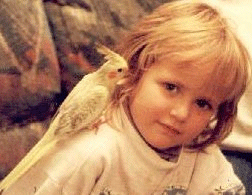
One of the most common questions parents ask is, “When is my child old enough to take on the responsibility of having a bird as a pet?” There are a number of things you should consider before purchasing a bird when you have young children in the home. Continue reading »

